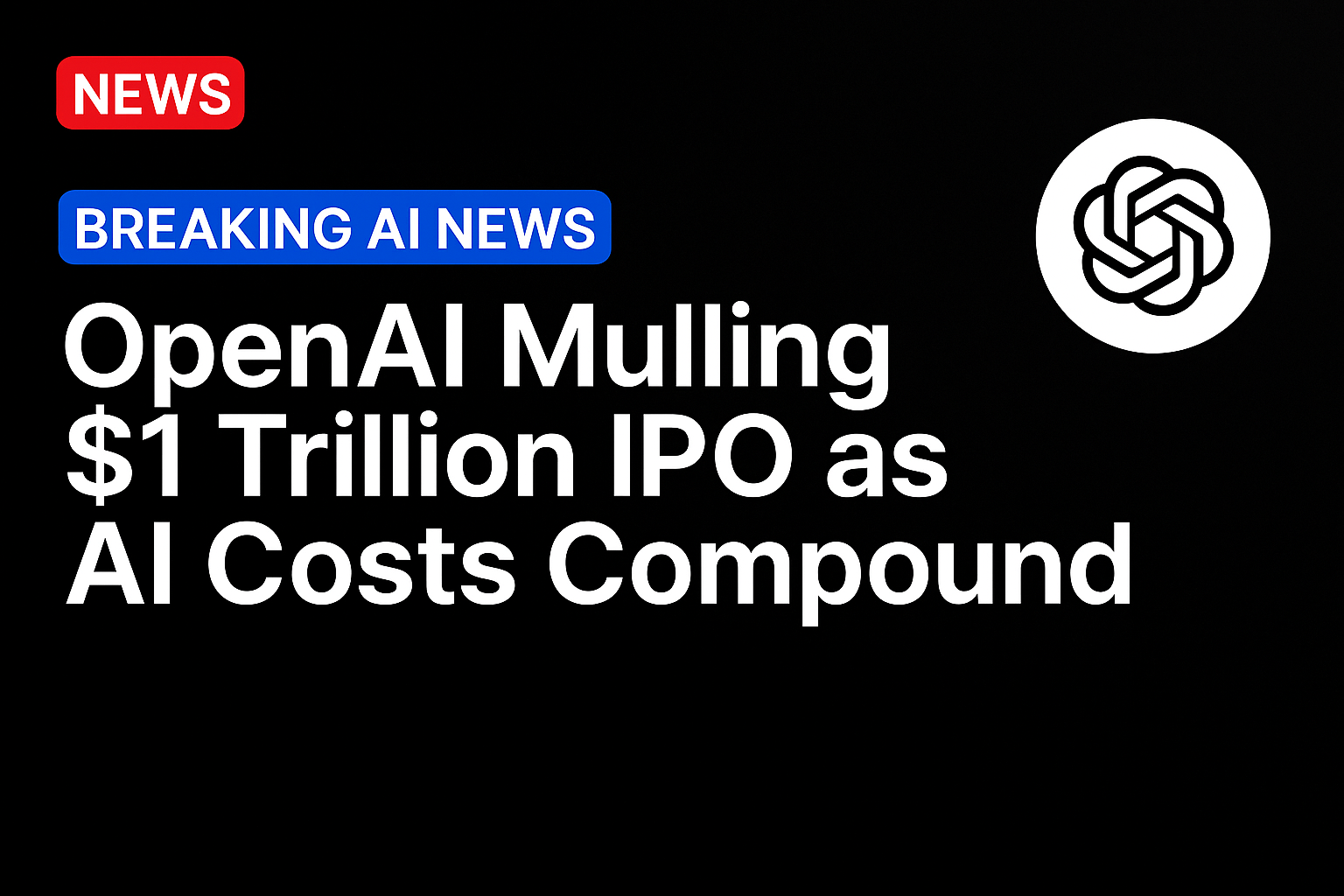
OpenAI is reportedly planning what could be one of the largest-ever initial public offerings (IPOs).
That’s according to a report late Tuesday (Oct. 29) by Reuters, citing three sources who say the public listing could value OpenAI at up to $1 trillion.
The artificial intelligence (AI) startup is considering filing with regulators as soon as the second half of next year, sources told Reuters, and has — in preliminary talks — looked at raising at least $60 billion, but likely more.
Sources added that OpenAI Chief Financial Officer Sarah Friar has told some associates the company is targeting a 2027 listing, though some advisers predict it could come even sooner, around late 2026.
“An IPO is not our focus, so we could not possibly have set a date,” an OpenAI spokesperson told Reuters.
“We are building a durable business and advancing our mission so everyone benefits from AGI,” referring to artificial general intelligence, or AI that can function at or above the level of humans.
Reuters notes that the IPO plans indicate a new urgency inside OpenAI to tap into public markets following its restructuring, which lessens its dependence on Microsoft. An IPO, the report added, would help finance CEO Sam Altman’s plans to spend trillions on AI infrastructure, according to sources familiar with the company.
The sources added that losses are also piling up inside the company, with an annualized revenue run rate expected to hit $20 billion by the end of the year.
Also Wednesday, Altman said OpenAI would like to develop an AI factory to make 1 gigawatt of compute per week of new capacity.
The company would like to do so “at a greatly reduced cost relative to today” Altman said in a post on X.
OpenAI has committed to about 30 gigawatts of compute with a total cost of ownership of about $1.4 trillion, Altman added, saying the company is “comfortable with this given what we see on the horizon for model capability growth and revenue growth.”
In other OpenAI news, PYMNTS wrote last week about the debate around — and possible risks involving — AI browsers after the company introduced its Atlas.
Ben Colman, CEO of Reality Defender, questioned whether consumers need a standalone AI browser to begin with.
“AI browsers are a hammer in search of a nail,” he told PYMNTS. “These ‘new browsers’ are just Chrome with an LLM [large language model] bolted on. … Why upend your entire way of browsing for the same browser with an LLM attached when it can introduce new vulnerabilities and security holes to your experience or that of your organization?”
Source: https://www.pymnts.com/




